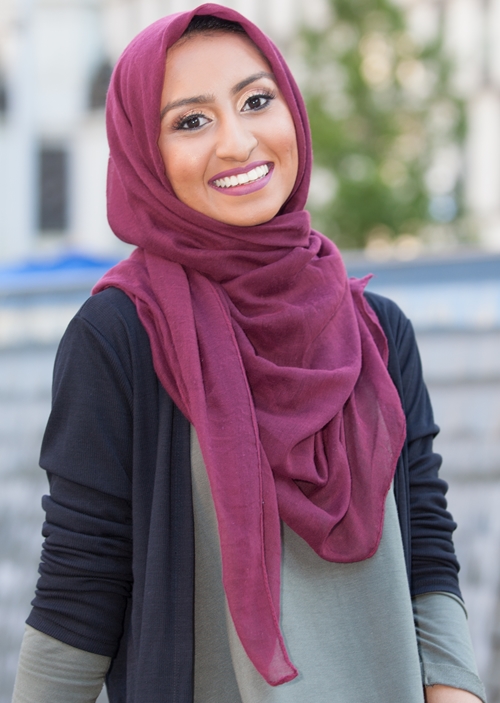
The writer, a community activist born and raised in Detroit, is the daughter of immigrants from Bangladesh who came here from New York in 1989. She has a master’s degree in public health from Wayne State.
This essay first appeared this week in "I Dream Detroit," a 98-page report from the Institute for Policy Studies. It’s republished with permission from that Washington, D.C., think tank.
By Sajeda Ahmed
The first word that I think of when it comes to Detroit’s revival is gentrification. Detroit is cool now.
I remember back in the day when nobody wanted anything to do with Detroit. Now it's trendy and everybody wants to be a part of it. Now you see people out in the suburbs wearing Detroit vs. Everybody and Born in the 313 T-shirts.
I work downtown right now in one of the big financial buildings where I overlook the city and think: "They're building condominiums along the river that no one can afford. They’re opening up these organic food shops that no one can afford, and driving these fancy cars."
At the end of the day, they drive home to the suburbs. They come here and work here, but they are not Detroiters.
'If you really care . . .'
In my company, we have about 2,000 employees and from what I know, I am one of only 20 who were actually born and raised in the city of Detroit. My family and I feel like we’re excluded from the revitalization that’s happening. I think if you really care about the city then you’re going to do more than just come here, work here and go home at the end of the day.

Sajeda Ahmed: "If you really care about the city then you’re going to do more than just come here, work here and go home." (Photo by Jacqueline Hicks)
Let's look at the communities and all that have been established here and figure out ways that we can build them up. Because that's the more lasting kind of revitalization—not like the trendy "let's build a couple of buildings and a stadium and call it revitalization."
Definitely the first thing I'd do would be to make sure women's voices are heard, something we have not seen so far in this revitalization.
Big businessmen and policymakers are making all these decisions. Nobody asked us if we wanted a new hockey stadium in the middle of the city. Nobody asked our opinion, and we're the ones who have to live around it and deal with everything that comes along with it.
Many people feel like we're paying all this money in taxes, but we're not getting the services we're entitled to have.
If you call an ambulance in Detroit, you’re better off just driving to the hospital. You'll get there faster.
If you call a police officer in an emergency, it'll take a good four to five hours for a cop to come.
There's no correlation between the amount of money that the city is asking us to pay in taxes and the services that we’re getting in return.
Our school system is in shambles. These hipsters who live in the city will shoot to the suburbs when they have kids. They aren’t sending their kids to a school where there’s 40 kids in the classroom, the walls are falling apart, and the floors are peeling off. Establish a top-of-the-line school system.
A compelling goal
Kids of these immigrant families really work to break out of the cycle of poverty. School is very important to us. A common theme among youth in the Bangladeshi community is: "I've got to graduate high school, go to college and get a job because I want to support my family."
We should hold a public forum and say: "Tell us how we can help and work together without hurting you, your business or your family."
Business people forget that when they come in they can't just cut off the communities. We are the lifeline. We are the blood that runs through the city. Without us, no revitalization will last.
In 10 years, I see myself still here in Detroit, doing community activism. Community activism is something that’s very important to me and my family.
Detroit is in my heart. I grew up here and lived here through the ups and downs. We have had several opportunities to move out into the suburbs for a better house or a better area, but we stayed. There’s a sense of community here that you really can’t get anywhere else. We stuck it out, and I think that made us very resilient.
We’ve seen the worst of Detroit, and we’ve seen the best of Detroit. There is no other place I would rather be.
I see myself working as a health educator. Hopefully, I’ll have a house of my own in the city of Detroit and be working here. I really want to keep the connection with the youth in our community and see them grow and become mature adults who are contributing to society. That would be like coming full circle for me. That would really mean a lot to me. We realize that they are the future. They’re a force that can continue to revitalize our community.










